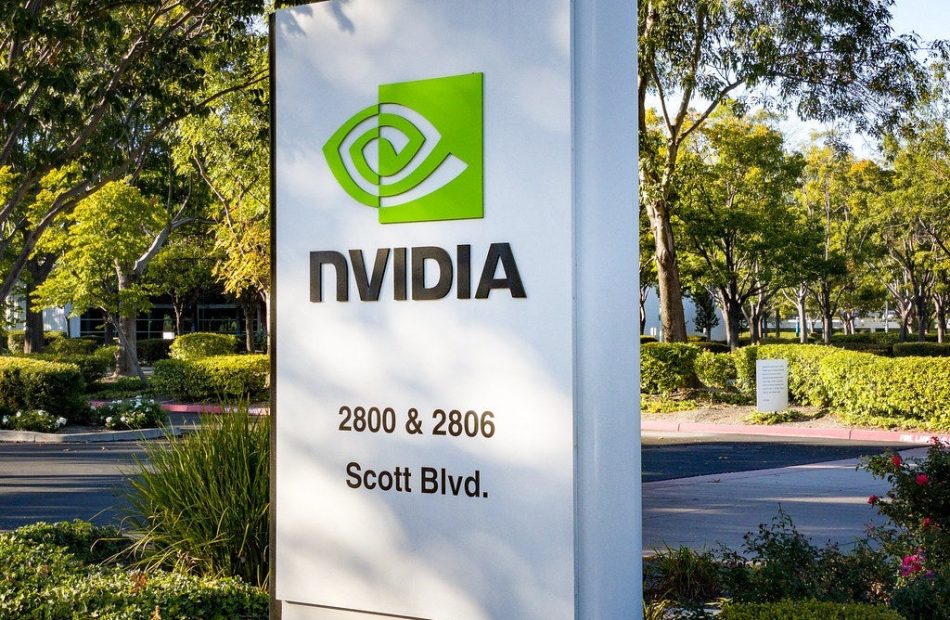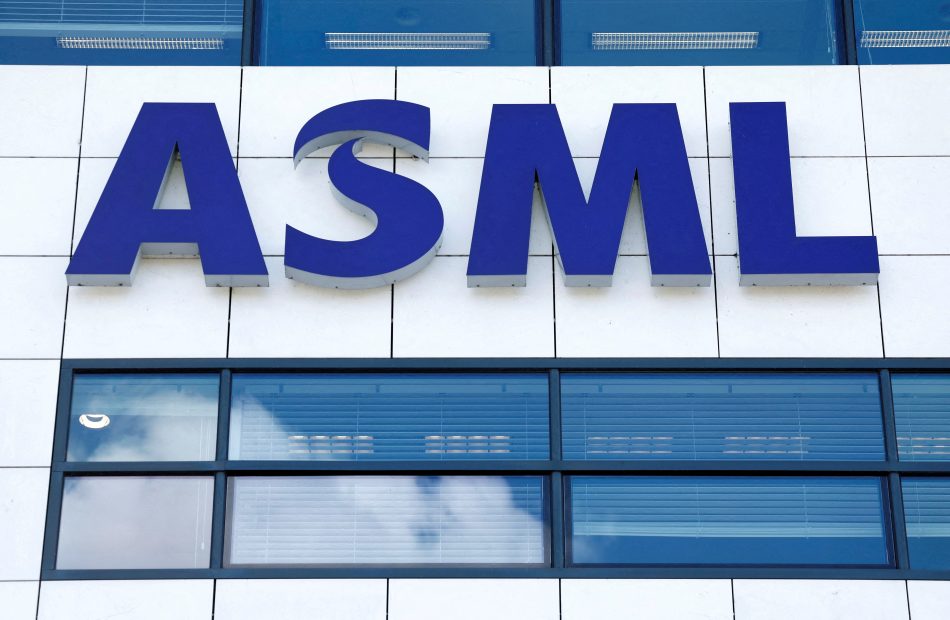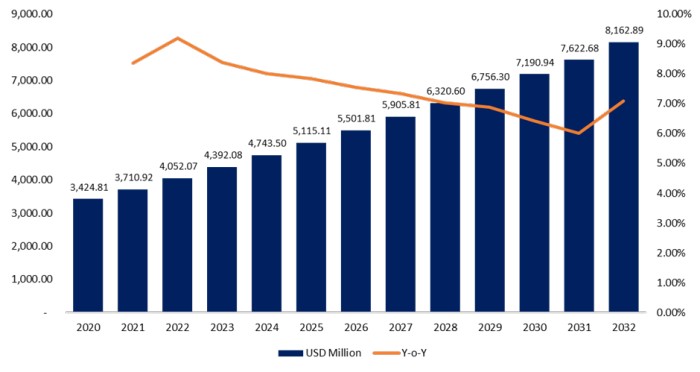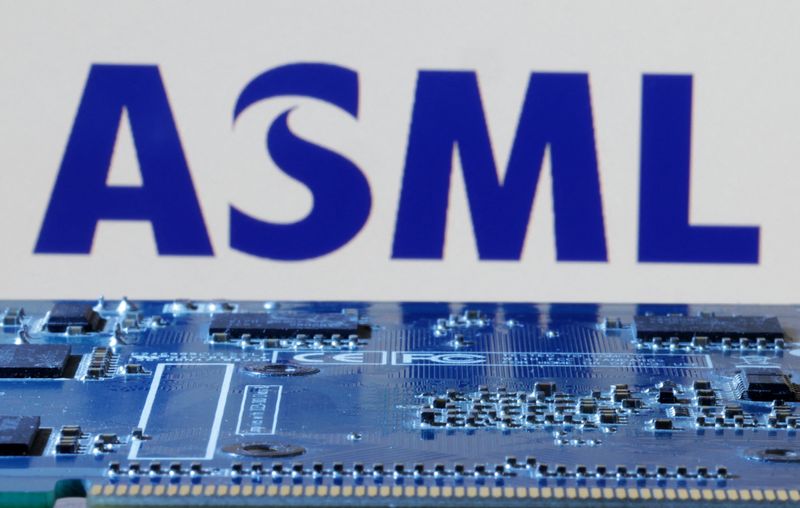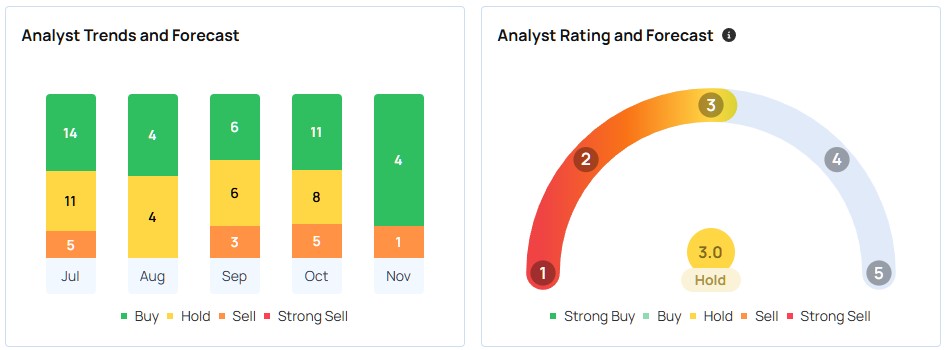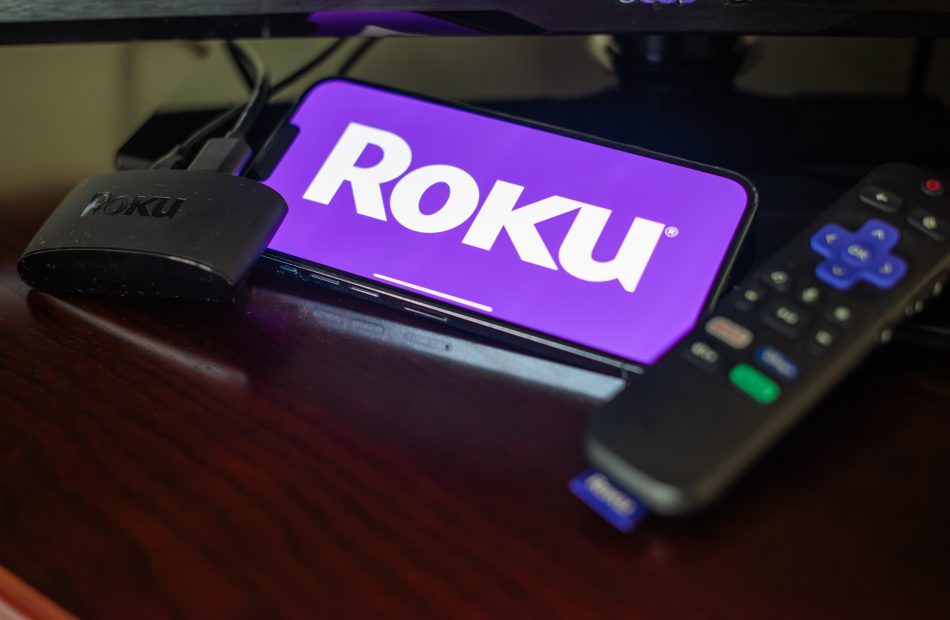Nvidia's Next Big Catalyst? Analyst Sees Jensen Huang-Led Company's Stock Jumping 27% By Early 2025
Investors are eyeing a potential surge in Nvidia Corp. NVDA stock, with analysts predicting a significant rise in the early days of 2025. The anticipation is fueled by expectations surrounding CEO Jensen Huang‘s keynote address at the event.
What Happened: Analysts at Citi have placed Nvidia on a “positive catalyst watch” for the upcoming 90 days, Business Insider reported on Thursday. The firm predicts the chipmaker’s shares could climb by 27%, reaching a target price of $175. This forecast comes as Huang prepares for his keynote at CES 2025, scheduled from Jan.7 to Jan.10. Huang will deliver the opening keynote on Jan. 6, followed by a Q&A session for financial analysts on Jan. 7, according to Citi.
Citi analyst Atif Malik forecasts that Nvidia’s profit margin will bottom out in the April quarter, with an upward trend expected thereafter. The company is anticipated to address AI robotics demand in sectors like warehouses, manufacturing, and humanoid robots.
Citi has maintained a “Buy” rating on Nvidia shares, raising its price target from $170 to $175 following the company’s third-quarter earnings release. Nvidia shares have surged 176% year-to-date, driven by strong demand for its AI GPU chips.
Why It Matters: Nvidia’s recent financial performance has been impressive, with the company surpassing third-quarter revenue and earnings per share estimates. The revenue of $35.1 billion, was a 94% increase year-over-year, beating the Street consensus estimate of $33.12 billion.
Additionally, the CES 2025 event is expected to be a platform for Nvidia to potentially reveal its next-generation GPUs. Rumors suggest that Nvidia might unveil updates about its RTX 50 series, including desktop GPUs based on the Blackwell architecture. This anticipated announcement could further bolster Nvidia’s market position and stock performance.
Price Action: Meanwhile, as per Benzinga Pro data, Nvidia has a consensus price target of $170.56 based on the ratings of 40 analysts. The high is $220 issued by Rosenblatt while the low is $120 issued by New Street Research.
Read Next:
Disclaimer: This content was partially produced with the help of Benzinga Neuro and was reviewed and published by Benzinga editors.
Image via Shutterstock
Market News and Data brought to you by Benzinga APIs
© 2024 Benzinga.com. Benzinga does not provide investment advice. All rights reserved.
Shares in ASML and peers climb amid hopes for less severe US curbs on China chips
(Reuters) -Shares of ASML (ASML, ASML.AS) and its peers in the European computer chip equipment sector climbed on Thursday after Bloomberg News reported that looming U.S. restrictions on the Chinese semiconductor industry may be less severe than expected.
Shares in ASML were up 4.3% by 0809 GMT, with Dutch rivals BE Semiconductor (BESI.AS) and ASM International (ASM.AS, ASMIY) rising by 5% and 2.9% respectively, among top performers on the European benchmark STOXX 600 index (^STOXX).
The Bloomberg report, citing unnamed sources, said that major Chinese memory chip manufacturer ChangXin Memory Technologies Inc (CXMT) would not be added to U.S. trade restrictions lists, adding that the timing and contents of the decision are not certain.
The U.S. Commerce Department oversees U.S. restrictions on China exports and is expected to issue new guidance after the Thanksgiving holiday.
ASML, the largest supplier of semiconductor-making equipment, declined to comment. At an investor day two weeks ago the company said it expects sales of its tools to China to drop to 20% of total sales in 2025 from nearly 50% over the previous six quarters.
Other top computer equipment suppliers include Applied Materials (AMAT), KLA Corp (KLAC), Lam Research (LRCX) and Tokyo Electron (TOELY, 8035.T).
(Reporting by Nathan Vifflin in Gdansk and Toby Sterling in AmsterdamEditing by Milla Nissi and David Goodman)
Auto Dealer Software Market Set For 6.2% Growth, Reaching $8,162.89 Million By 2032 Globally
Gondia, India, Nov. 28, 2024 (GLOBE NEWSWIRE) — As per the latest research report published by IMIR Market Research, the global Auto Dealer Software Market is experiencing unprecedented growth, driven by rising demand for improved customer engagement, streamlined dealership operations, and integrated dealer management systems (DMS).
As per our research, in 2023, the Auto Dealer Software market was valued at USD 4,392.08 Million and is expected to reach USD 8,162.89 Million by 2032 at the CAGR of 6.2% during 2024-2032.
Our Report will help you understand the consumer behavior analysis towards the products and raw material across different age group.
To get the Detailed Report Now: https://www.intellectualmarketinsights.com/download-sample/IMI-000444
Figure: Global Auto Dealer Software Market, 2020-2032, (USD Million)
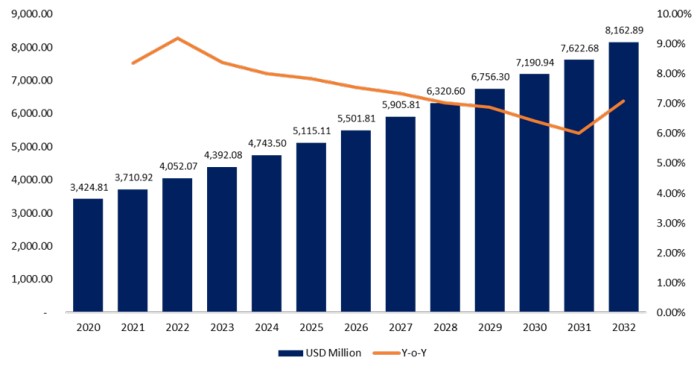
Key Growth Factors in the Auto Dealer Software Market
The use of cloud-based dealer management systems and automotive software solutions has brought drastic changes to the face of the automotive dealership landscape. Dealerships look at utilizing data analytics, real-time tracking, and predictive sales to improve the customer journey; hence, the emergence of Auto Dealer Software solutions is on the rise. With the growth of online automobile retailing and automobile e-commerce websites, comes the increased demand for the more advanced software tools that can ensure smoother transaction processes with proper CRM.
Innovations in Dealer Management Systems Drive Market Growth
Auto dealer software solutions are gradually moving away from the simple management systems, integrating features of artificial intelligence, machine learning, and data analytics into the solution to provide predictive insights and customized experiences for the dealerships. They help dealerships streamline the inventory management process, optimize their sales forecasting, and achieve better customer retention. Since real-time inventory tracking lets dealerships respond better to customer demands, it thus enhances operational efficiency and profit margins.
Moreover, with advanced CRM software deployed inside dealer systems, it tends to maintain dealerships with personal ties with customers as well as ensure stronger loyalty and lifetime value. Rising global pressure on the digitalization of automotive industries brings greater attention towards the software related to auto dealers for an improvement in business growth along with efficiency in their working.
Based on function, the market is segmented into customer service, data reports, and inventory management
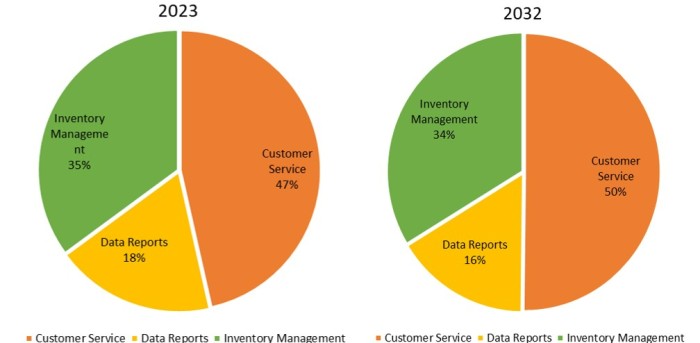
North America and Asia-Pacific Leading the Market
Because of regions, the market is segmented into North America, Europe, Asia Pacific, Middle East & Africa, and Latin America.
Auto dealer software is gaining the highest regional scope across many regions, and North America happens to be the most dominant market because of its wide adoption of technology and a prominent automobile industry. The Asia-Pacific region is proving to be a significant growth contributor since vehicle sales are increasing, automotive retail has shown a huge hike, and investments in digital dealership platforms are undertaking. As dealerships in those locations upgrade their businesses, more advanced dealer software would probably be in high demand.
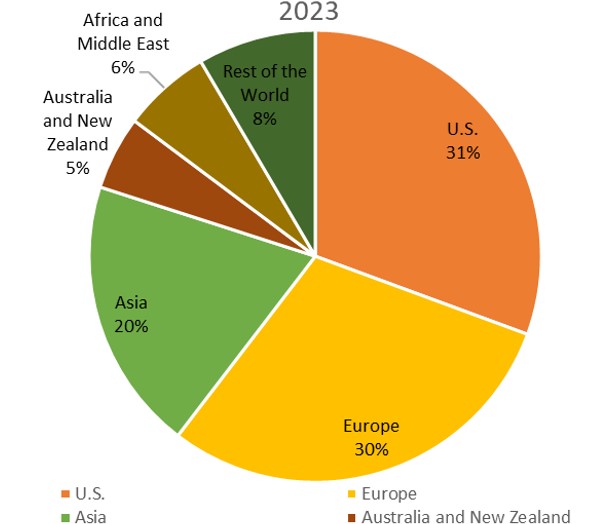
Get sample copy of this premium report: https://www.intellectualmarketinsights.com/download-sample/IMI-000444
Outlook
The future of auto dealer software will rest solely in its capacity to adjust to the changing needs of modern dealerships and to their customers. Hence, as dealerships would eventually focus on upgrading their service through digital interfaces as well as personalizing service lines, the usage of this dealer management software is expected to be promoted at a faster pace. The emergence of electric vehicles and the integration of sustainability initiatives are also likely to change market dynamics and create an opportunity for the innovation and capitalization of green automotive trends by software vendors.
Key Players and Competitor
The market features several prominent players, including CDK Global Inc., Cox Automotive Inc., Reynolds and Reynolds, and Dealertrack Technologies. These companies continue to invest in R&D to develop innovative software solutions, thereby consolidating their market position. Strategic partnerships and acquisitions are also prevalent as firms expand their product offerings and enhance their service capabilities.
Key Developments
- A B2B sales platform for purchasing and selling automotive software was developed in March 2024 by General Motors (GM), Magna, a major global automotive supplier, and Wipro Limited, a significant provider of technology services and consultancy. By offering a platform that connects buyers and sellers of embedded automotive software, SDVerse seeks to transform the sourcing and procurement process for automotive software.
- Xzilon, the market standard for high-performance vehicle protection solutions, was acquired by The Reynolds and Reynolds Company in July 2023. With its exterior protection products (Carbon Ceramic with Graphene and Diamond Grade 9H Ceramic System), all-in-one interior protection (Xmicrobe), and a comprehensive line of other industry-leading appearance protection products, the Xzilon brand is well-known in dealership F&I departments and is nationally recognized.
Market Segmentations:
| By Deployment Type | |
| By Application |
|
| By Dealership Size |
|
| By End-User |
|
| By Region |
|
Regional Snapshots:
By region, Insights into the markets in North America, Europe, Asia-Pacific, Latin America and MEA are provided by the study. North America on a strong dominant position with the well-matured and developed automobile industry which carries an immense number of dealerships with implementation of latest technology in them. The count of dealerships here makes the trend of dealers here to demand more levels of software for day-to-day operations, not only on customer-related interaction but due to very strict regulatory norms. The presence of the major vendors and innovative minds in the region adds more strength to the North American software market.
The European market for auto dealer software is boisterous with increasing emphasis on customer-centric services and the entry of digital solutions in dealership operations. Leaders in the adoption of CRM and inventory management systems are Germany and the UK, and more dealerships are beginning to understand the impact data analytics has on sales strategies. The changing legislation on emissions and good practice, the dealership felt a need to invest more in compliance management and ensure clear operations through the support of software.
Auto dealer software is emerging as one of the fastest-growing markets within the Asia-Pacific region given an increase in vehicle ownership across China and India and expanding rapidly in the automotive business. The growing demand of vehicles has its reasons behind it and these include an increasing number of a middle class having disposable income; it is only with more effective management, dealerships need to adapt more advanced software solutions concerning inventory management, sales as well as relationships with their customers. One other force promoting the application of software is the rapid increase of the influence of e-commerce among automotive businesses: a dealer that wants to launch online sales becomes obligated to explore cloud-based software solutions as well.
Latin America, although in its growth stage, still has immense potential in the auto dealer software market. Countries like Brazil and Mexico are experiencing a gradual transition toward digital solutions by dealerships for more modernized operations and improvement of customer experience. However, economic instability and variable levels of technological infrastructure will affect rapid adoption.
The region for the Middle East and Africa is one of unique opportunity and challenges for the auto dealer software market. This is because although the region boasts a burgeoning automotive market, the uptake of more complex software solutions remains very small. The adoption of more digital solutions for engaging with customers and managing dealership processes and operations remains relatively underdeveloped. There are exceptions in large urban areas experiencing high levels of new car sales, but there remain broader regulatory and economic hurdles.
The auto dealer software market shows regional diversity, where North America and Europe have a higher rate of adoption, but the Asia-Pacific region has shown the maximum growth potential. In light of this, as more dealerships recognize the necessity of digital transformation, there will be the need for particular solutions that will fulfil the regional needs, thereby becoming essential for market players in order to gain their share of opportunities that are arising.
Get Access of this Report: https://www.intellectualmarketinsights.com/report/auto-dealer-software-market-size/imi-000444
About Us:
IMIR® Market Research Pvt Ltd.
Intellectual Market Insights Research is a market intelligence and consulting organization that provides syndicated research reports, customized research reports, and consulting services. We are known for our actionable insights and authentic reports in various domains including, Semiconductor, aerospace, Automation, Agriculture, Food & Beverages, Automotive, Chemicals and Materials, and virtually all domains and an exhaustive list of sub-domains under the sun. We create value for clients through our highly reliable and accurate reports.
IMIR has the distinguished objective of providing optimal quality research and granular research to clients. Our market research studies by products, services, technologies, applications, end users, and market players for regional, and country level market segments, enable our clients to see more, know more, and do more, which help answer your most important questions.
Digvijay Chakravarty | digvijay.C@intellectualmarketinsights.com
Follow Us: LinkedIn
Email: sales@intellectualmarketinsights.com
Call Us: +1 (814) 487 8486

Contact Data Managing Director: Digvijay Chakravarty | Email: digvijay.c@intellectualmarketinsights.com Call us: +1 (814) 487 8486, +919764079503
© 2024 Benzinga.com. Benzinga does not provide investment advice. All rights reserved.
ASML and peers climb on hopes for less severe US curbs on China chips
(Reuters) -Shares of ASML and its peers in the European computer chip equipment sector climbed on Thursday after Bloomberg News reported that looming U.S. restrictions on the Chinese semiconductor industry may be less severe than expected.
Shares in ASML were up 4.3% by 0809 GMT, with Dutch rivals BE Semiconductor and ASM International rising by 5% and 2.9% respectively, among top performers on the European benchmark STOXX 600 index.
The Bloomberg report, citing unnamed sources, said that major Chinese memory chip manufacturer ChangXin Memory Technologies Inc (CXMT) would not be added to U.S. trade restrictions lists, adding that the timing and contents of the decision are not certain.
The U.S. Commerce Department oversees U.S. restrictions on China exports and is expected to issue new guidance after the Thanksgiving holiday.
ASML, the largest supplier of semiconductor-making equipment, declined to comment. At an investor day two weeks ago the company said it expects sales of its tools to China to drop to 20% of total sales in 2025 from nearly 50% over the previous six quarters.
Other top computer equipment suppliers include U.S. companies Applied Materials , KLA Corp, Lam Research and Tokyo Electron.
(Reporting by Nathan Vifflin in Gdansk and Toby Sterling in AmsterdamEditing by Milla Nissi and David Goodman)
Factbox-Airports to cooking oil: the many businesses of India's Gautam Adani
(Reuters) – Indian billionaire Gautam Adani oversees a sprawling conglomerate with activities spanning construction of airports to supply of electricity and the sale of cooking oil.
U.S. authorities have accused Adani, his nephew and executive director Sagar Adani and managing director of Adani Green, Vneet S. Jaain, of being part of a scheme to pay bribes of $265 million to secure Indian power supply contracts, and misleading U.S. investors during fund raises there.
The group has called the allegations baseless.
Here are key details of the Adani Group’s businesses:
** Energy: It mines thermal coal and produces power through its utilities firm Adani Power, which is transmitted via Adani Energy Solutions.
The renewable energy arm of the ports-to-power conglomerate is Adani Green Energy, which is at the center of the U.S. indictment. It focuses on solar, wind and hybrid power generation and has a presence in a dozen Indian states.
Adani Total Gas, which distributes piped natural gas, is run in a partnership with TotalEnergies.
** Airports: Since entering the space in 2019, the group runs airports in cities from Mumbai, the commercial capital, to the tourist city of Jaipur and southern Thiruvananthapuram, through its flagship firm, Adani Enterprises.
The flagship also has a presence in roadways, real estate and infrastructure.
** Edible oils and food: The group’s joint venture with Singapore’s Wilmar International makes edible oils and packaged food items such as fragrant basmati rice, wheat flour and sugar under the Adani Wilmar banner.
** Port operations: Adani Ports, India’s top private operator by volume, manages 13 domestic ports, including the country’s busiest private port, Mundra in the western state of Gujarat.
Outside India, Adani Ports owns a stake of 70% in Israel’s port of Haifa and 51% in Sri Lanka’s Colombo port.
** Cement: The group entered the industry in 2022, inking its biggest-ever deal in the space by acquiring Holcim AG’s stake in Ambuja Cements and ACC. It has been on an acquisition spree since in its bid to topple India’s top cement maker, UltraTech Cement.
** Media: Adani entered India’s media industry by acquiring a majority stake in Quintillion Business Media, a financial news digital media platform, in 2022. Afterwards, it strengthened its hold in the space by striking deals with news broadcaster NDTV in 2022 and news agency IANS in 2023.
It also builds and runs data centres nationwide.
** Defence and aerospace: One of the few private players in a state-dominated weapons sector, the group supplies domestically made weapons to Indian forces. In 2018, it signed a supply deal with Israel’s Elbit Systems.
(Reporting by Kashish Tandon and Hritam Mukherjee in Bengaluru; Editing by Clarence Fernandez)
Tesla Cybercab Spotted Testing In Giga Texas Facility
Tesla Inc. TSLA has been spotted testing the recently announced Cybercab at the Giga Texas facility.
What Happened: Tesla’s Cybercab has been observed undergoing tests at the Giga Texas facility. A video shared on social media showcased the Cybercab navigating traffic autonomously within the premises.
Earlier this month, the electric vehicle community was abuzz when a video surfaced showing the Cybercab in action at Giga Texas. The footage highlighted the robotaxi’s self-driving capabilities, sparking excitement among enthusiasts.
Longtime Giga Texas observer Joe Tegtmeyer reported that Tesla has been conducting test drives of the Cybercab along the main building of the factory over the past weeks. Notably, a modified gaming joystick is used for manual interventions during these tests.
See Also: Tesla Sweetens Referral Program, Allowing Customers To Earn Up To $10,000
Additional tests, including water ingress tests, are reportedly being carried out at the west end-of-line facility and other areas around Giga Texas. A significant amount of production equipment has been spotted at the staging lot, hinting at a potential new production line.
During the Q3 2024 earnings call, Elon Musk mentioned that Tesla aims for volume production of the Cybercab by 2026, with initial production possibly starting in 2025. The company plans to produce at least 2 million units annually.
Why It Matters: The testing of the Cybercab at Giga Texas marks a significant step in Tesla’s unveiling of its two-seater robotaxi earlier this year.
The Cybercab, priced under $30,000, is part of Tesla’s strategy to revolutionize urban transportation with autonomous vehicles. This comes at a time when there is skepticism from industry rivals like Lucid Group Inc. LCID, whose CEO Peter Rawlinson doubts the near-term feasibility of self-driving cars.
In pursuit of this goal, Tesla is actively recruiting top talent to enhance its teleoperation capabilities for the Cybercab and other projects, as reported in recent initiatives.
Price Action: Tesla stock closed at $332.89 on Wednesday, down 1.6% for the day. In after-hours trading, the stock increased slightly by 0.5%. Year to date, Tesla’s stock has gained 34%, according to data from Benzinga Pro.
The consensus rating from analysts is “Neutral” for the Tesla stock, according to data from Benzinga Pro. The highest price target is $400, while the consensus price target is 232.20, implying a 30% downside.
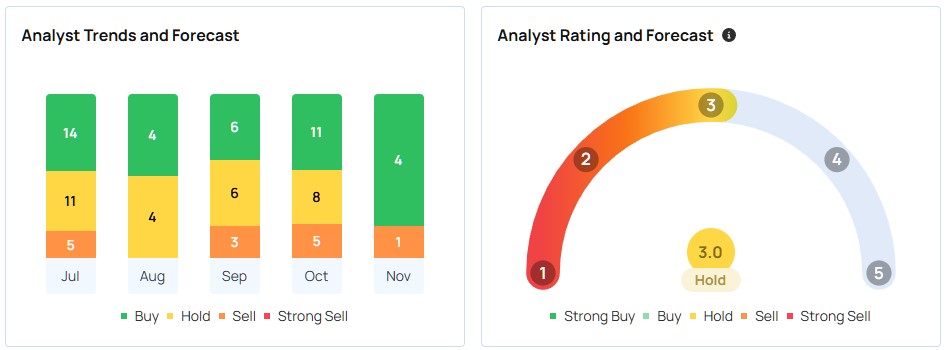
Check out more of Benzinga’s Future Of Mobility coverage by following this link.
Read Next:
Disclaimer: This content was partially produced with the help of AI tools and was reviewed and published by Benzinga editors.
Photo courtesy: Tesla
Market News and Data brought to you by Benzinga APIs
© 2024 Benzinga.com. Benzinga does not provide investment advice. All rights reserved.
Could Buying Roku Stock Today Set You Up for Life?
Netflix, now one of the world’s largest technology companies, is the gold standard of the streaming industry. Although many competitors have entered the fray, Roku (NASDAQ: ROKU) remains one of the field’s oldest players, with ties to Netflix’s early years in streaming.
Roku lucratively rewarded shareholders from its initial public offering (IPO) through 2021 but has lost 85% of its value since peaking in the 2021 stock market bubble. Could buying the stock position investors for a remarkable comeback story and set them up for life? Or is the stock’s decline a permanent loss, a warning sign to prospective investors to stay away?
Are You Missing The Morning Scoop? Breakfast News delivers it all in a quick, Foolish, and free daily newsletter. Sign Up For Free »
Here is what you need to know.
Most consumers recognize Roku for its streaming dongles, speakers, and Roku-branded streaming televisions. However, Roku sells its hardware at a loss, which investors should view as bait to get users into its ecosystem. Roku’s core business is its software platform, which you use whenever you stream content on a Roku device, Roku TV, or third-party TV using Roku’s licensed operating system. Roku generates platform revenue from ads and fees to third-party partners (such as streaming services).
It’s a little complex, but the simple point is this: Roku wants to be the gatekeeper to the streaming viewer. It intends to profit from streaming no matter what you watch, as long as it’s on a Roku device.
This middle role of sorts comes with competition from both sides. Roku competes with other TV manufacturers, and its in-house streaming service, The Roku Channel, competes for eyeballs with other streaming services. For example, Roku and (HBO) Max partnered so Roku users can access Max. However, there’s underlying competition since Max and Roku would prefer you watch their respective streaming service versus the other.
I suspect the market has come to fear this competitive dynamic, which might help explain why Roku stock trades near its lowest valuation since going public (more on that in a minute).
But what’s indisputable is that Roku has continued to grow; its user base reached 85.5 million households in the third quarter. It’s not as large as the leading streaming services — Netflix has almost 283 million paid subscribers — but it’s large enough to create leverage in that streamers feel the need to work with Roku.
Earnings Scheduled For November 28, 2024
Companies Reporting Before The Bell
• Rush Street Interactive RSI is expected to report quarterly earnings at $0.13 per share on revenue of $304.70 million.
Companies Reporting After The Bell
This article was generated by Benzinga’s automated content engine and reviewed by an editor.
Market News and Data brought to you by Benzinga APIs
© 2024 Benzinga.com. Benzinga does not provide investment advice. All rights reserved.
China's Robotaxi Firm Pony AI Looks To Diversify Supply Chain After Nasdaq Debut, Growing Competition With Tesla, Waymo, And Amazon
Pony AI PONY CEO James Peng emphasized the company’s strategic focus on supply chain diversification and international market expansion following its Nasdaq debut, as the autonomous driving technology firm navigates ongoing U.S.-China tensions.
What Happened: “For us, it’s nothing new. We have dealt with this for quite some time already,” Peng told Bloomberg Television on Thursday, addressing potential chip export restrictions.
“Our strategy was and remains to be, we will diversify our supply chain,” Peng stated. “As more and more manufacturing of chips are coming out of China or rest of the world, we’ll try to have more diversified supply chain to further de-risk from geopolitical tensions.”
The company plans to strengthen its presence in markets outside the United States, particularly in South Korea, Singapore, and the Middle East.
Why It Matters: Despite opening at the IPO price of $13, Pony AI shares closed their first trading day at $12.00, down 7.69%. The stock showed signs of recovery in after-hours trading, climbing 2.75% to $12.33.
Pony AI, which debuted on the Nasdaq amid U.S.-China tensions, globally competes with leaders like Tesla Inc. TSLA, Waymo part of Alphabet Inc. GOOGL GOOG, and General Motors Co. GM-backed Cruise in the autonomous driving space.
Tesla is advancing its robotaxi ambitions with its FSD fleet, while Waymo operates commercial services in Phoenix and San Francisco, with plans for Los Angeles. Cruise is scaling urban operations, and players like Amazon.com Inc.‘s AMZN Zoox and Aurora Innovation AUR target niche solutions.
With over 250 robotaxis and 190 robotrucks in China, Pony AI seeks to reduce reliance on single markets, focusing on South Korea, Singapore, and the Middle East to diversify and counter geopolitical risks.
Goldman Sachs, Merrill Lynch, and Deutsche Bank are serving as lead underwriters for the IPO, which is scheduled to close on Friday.
Read Next:
Photo courtesy: Shutterstock
Disclaimer: This content was partially produced with the help of AI tools and was reviewed and published by Benzinga editors.
Market News and Data brought to you by Benzinga APIs
© 2024 Benzinga.com. Benzinga does not provide investment advice. All rights reserved.
Unusual Machines CEO: Donald Trump Jr. Advisory Role Isn’t About Political Connections
Drone-parts maker Unusual Machines UMAC 84.51%increase; green up pointing triangle says Donald Trump Jr.’s advisory role is about the president-elect’s son’s business network, not his political connections.
News of Trump Jr. being named an advisor to the Orlando, Fla., company sent shares surging Wednesday. The stock, which early in the trading session had more than doubled, was recently up 50%, to $8.07, and on pace for a record close after debuting on public markets earlier this year.
Copyright ©2024 Dow Jones & Company, Inc. All Rights Reserved. 87990cbe856818d5eddac44c7b1cdeb8

